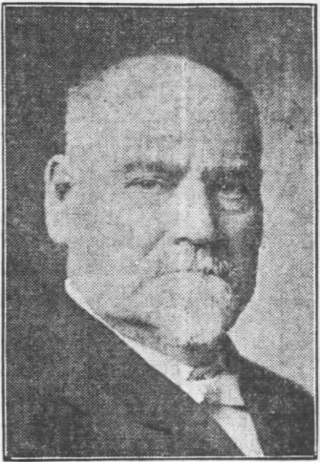Related Research Articles
The University of Iowa College of Law is the law school of the University of Iowa, located in Iowa City, Iowa. It was founded in 1865.
James E. Edmondson is a justice of the Oklahoma Supreme Court. He was appointed to the Court's District 7 seat by Governor Brad Henry in 2003.

Walter Augustus Huxman was an American attorney, politician, and jurist who served as the 27th governor of Kansas and a United States circuit judge of the United States Court of Appeals for the Tenth Circuit.

The University of Missouri–Kansas City School of Law is the law school of the University of Missouri–Kansas City. It is located on the university's main campus in Kansas City, Missouri, near the Country Club Plaza.
During his only term in office, President Herbert Hoover appointed three members of the Supreme Court of the United States: Chief Justice Charles Evans Hughes, and Associate Justices Owen Roberts and Benjamin Cardozo. Additionally, with his failed nomination of John J. Parker, Hoover became the first president since Grover Cleveland to have a Supreme Court nomination rejected by the United States Senate.
Henry Freeman Mason was a Republican politician and justice of the Kansas Supreme Court from January 12, 1903 to May 4, 1927.

Noma D. Gurich is an American attorney and jurist who is serving as an associate justice of the Oklahoma Supreme Court. Gurich was appointed the State's highest court by Governor Brad Henry in 2010 and assumed office on February 15, 2011. Gurich was appointed to the Court following the death of long-time Justice Marian P. Opala. Gurich is the third woman in state history after Alma Wilson and Yvonne Kauger to be appointed to the Supreme Court.

Charles Burleigh Graves was a justice of the Kansas Supreme Court from August 21, 1905, to January 9, 1911.
Edward Ray Sloan was a member of the Kansas House of Representatives and justice of the Kansas Supreme Court from April 6, 1931, to January 9, 1933.
Edwin Wilber Cunningham was a justice of the Kansas Supreme Court from January 15, 1901 to August 16, 1905.
John Hampton Watson was an American doctor, lawyer, and judge for various periods of his life in Pennsylvania, Ohio, and Kansas.
Judson S. West was a justice of the Kansas Supreme Court from January 9, 1911, to January 8, 1923.

William Agnew Johnston was a Kansas State Representative in 1875, Kansas State Senator, justice of the Kansas Supreme Court from December 1, 1884, to January 12, 1903, and chief justice from January 12, 1903, to June 30, 1935.
William Jennings Wertz was a lawyer, Kansas state senator from 1941 to 1942 and a justice of the Kansas Supreme Court from March 1, 1950, to December 4, 1950, and again from January 8, 1951, to October 1, 1965.

John Marshall was a justice of the Kansas Supreme Court from January 11, 1915, to March 25, 1931.
References
- ↑ "Disciples of Christ Politicians in Oklahoma". Political Graveyard. Retrieved April 19, 2018.
- 1 2 Sharp, Susie M. (1932). "Supreme Courts sitting in Divisions". North Carolina Law Review. 10 (4). Retrieved April 20, 2018.
- ↑ "Former Oklahoma judge a suicide". Emporia Gazette . Emporia, Kansas. July 26, 1940. Retrieved April 21, 2018.
- ↑ "Doris Lester Burns". NewsOK. September 26, 1993. Retrieved April 21, 2018.